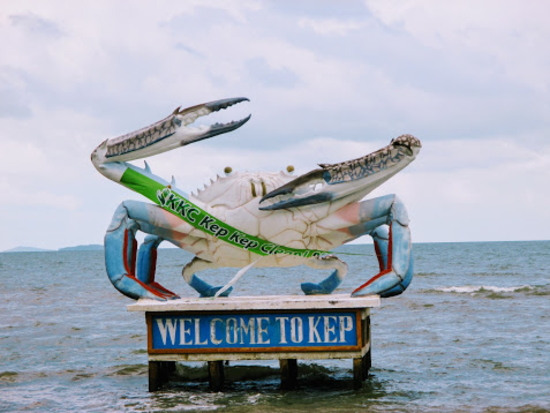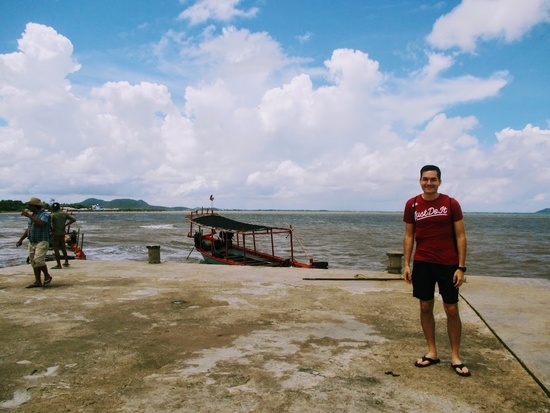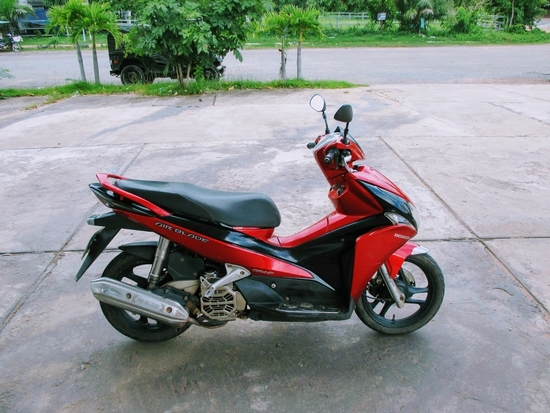Week Three

This past weekend I had the opportunity to leave Phnom Penh for the first time and travel to the sleepy beach town of Kep. Kep is located four hours from Phnom Penh in Southern Cambodia along the coast. Kep was a former thriving resort town for the French elite during the colonial period. Today, it is described as a "post-apocalyptic" beach because it is very calm and peaceful. However, before I could arrive in Kep, I first had to navigate out of the city! Friday was the last day of campaigning for the local commune elections so the streets were flooded with excited and passionate Khmer people who were cheering on their candidates and political parties. The two main political parties in Cambodia are the CPP and the CNRP and their supporters were all dressed up in their respective gear and waving flags. The Cambodian people are definitely more engaged in their electoral politics than people in the United States.

Once we arrived in Kep, Lauren and I made the most of our time and we were on the go for the entire weekend! On Saturday, we walked to the local crab market which was filled with fisherman hauling in the day’s catch and vendors buying and selling their seafood. It was the nicest smelling seafood market I have visited because so many people were cooking the seafood out in the open! Later that day we decided to be adventurous and we took a thirty-minute boat ride to Rabbit Island. The seas were very choppy and our boat was of questionable quality and durability - luckily we made it! Rabbit Island is a desolate sea of green with overgrown forest and palm trees. I enjoyed the scenery and being in nature after staying in Phnom Penh for so long. During our journey, we met travelers from China, Germany, and France! It is always interesting to meet fellow foreigners and hear their stories.

On Sunday, Lauren and I rented motorbikes for only $7. I was pleasantly surprised at the speed and the acceleration of the bikes! After a few minutes of getting used to the bikes, we were cruising up and down the coast like regular pros. Kep was a fun little town and I will definitely return before the end of my journey!

On Monday, my research assignment awaited! This week my research focused on establishing the general principles of intellectual property in my paper and examining the international framework for copyright law. I do not have any prior experience with intellectual property law so I spent the first few days familiarizing myself with the general concepts of IP. Luckily, I already had a solid foundation on property law in general thanks to Professor Rosenberg. Also, the dedicated librarians at William & Mary’s Wolf Law Library had already prepared me to tackle new research areas during the past year so I was able to hit the ground running. I became familiar with IP by using Lexis and browsing through secondary materials. After some research, I found a great treatise for intellectual property and copyright, Nimmer on Copyright, which was extremely useful!
The treatise helped me to familiarize myself with the different branches of intellectual property as well as the diverse objectives and rights. IP really is an engaging and important field that I want to explore back in Williamsburg. Copyright law has become increasingly more important in the 21st century as people discover news ways to express, share, and access creations. The copyright legal framework is constantly evolving to define and allocate ownership of these assets. I was intrigued by the constant dilemma governments have when allocating rights. My assumption was that the copyright laws were designed simply to protect authors, which is indeed the traditional objective of copyright. The traditional objective of copyright is to protect the “moral and economic rights” of creators over their creations and works. However, I was surprised to discover that USERS also have rights. The second and more modern objective of copyright law is to use copyright to encourage creativity and innovation that help to spur economic and social development. As I learned more about the fair use doctrine, something clicked. Copyright law really can contribute to development by ensuring diffusion and access. Open Development Cambodia benefits from both the traditional and the more modern approaches because it is both a creator and a user. For the rest of the week I will be analyzing several international treaties that help to form the legal framework for international copyright law.